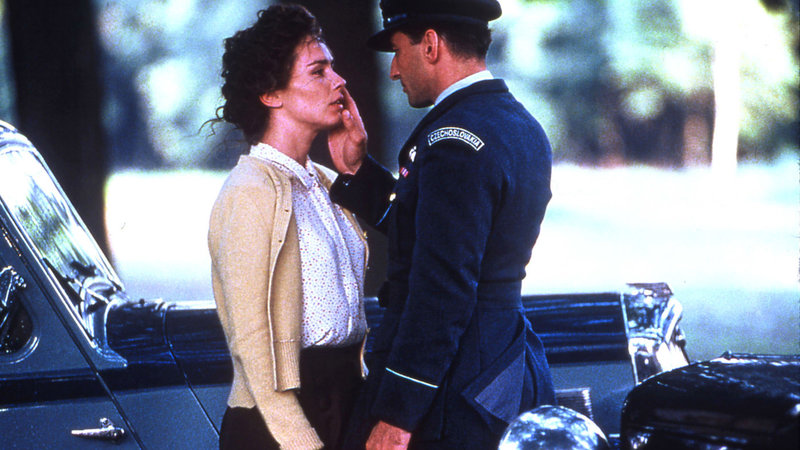
Screened as part of NZIFF 2002
Dark Blue World 2001
Tmavomody svet
"Dark Blue World, the most recent movie by Jan Sverák (Kolya), is a defiantly old-fashioned World War II romance that sends us soaring skyward, then crashing back to earth. With deep sympathy and a little schmaltz, Sverák portrays the Czech contingent of the British RAF during the Battle of Britain, and he also shows us a love-triangle story about two young best-buddy Czech fliers who fall in love with the same Englishwoman. That sounds familiar, but Dark Blue World, is a world away from Pearl Harbor's lovelorn flyboy hunks and hell-breaking-loose set pieces. The film mixes unashamed kitsch, thrilling airfight scenes and dark historical drama. But what gives it a special charge is its portrait of the Czech RAF group: what happened to them before, during and after the war.
Sverák’s script was written by his actor-screenwriter father Zdenek Sverák (the writer-star of Kolya) and, like Kolya, it works partly because it’s familiar. The central characters are pilot friends Frantisek Sláma and idolatrous young Karel VojtísŠek, who flee Czechoslovakia together after the Nazi occupation and join the RAF under stiff-upper-lip wing commander Bentley. At first, they take joy in flying and fighting together against the hated Nazis…
As in [Howard] Hawks’ films, it’s a woman who tears them apart: Susan, whose husband is missing in action and who ends up sleeping with both Czechs. All this could rightly be condemned as kitsch, like the corny triangle in Pearl Harbor, but Sverák, the most Americanized of all the new Czech directors, enriches the story by the way he frames it, with scenes of FrantisŠek in a Czech prison after the war…
The Sveráks present the pilots as heroes without honor, political casualties. And it’s true: after helping defeat the Luftwaffe and turn the tide in one of the 20th century’s most crucial conflicts, the Czech pilots returned home not to honor and glory but disgrace and imprisonment. When the Communists took over Czechoslovakia, they threw them all in jail, fearing the pilots’ military expertise and their ties to the West. They were victims of history and the movie’s primary impetus is to free and celebrate them. It does." — Michael Wilmington, Chicago Tribune